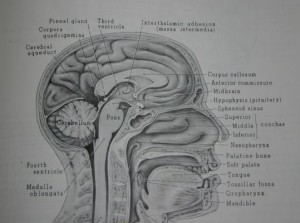 The discovery in 2007 of a “bottleneck in the brain” showed that multitasking is not productive.
The discovery in 2007 of a “bottleneck in the brain” showed that multitasking is not productive.
Doing even just two tasks, both very simple, involves negotiating three bottlenecks in the brain.
- Deciding which we want to give our primary attention to. The researchers called this /the attention blink/.
- Holding two sets of information in our limited short term memory. The researchers called this /the cognitive limit/.
- Selecting a response to the situation and then deciding which selection to implement first. The researchers called this /the choice delay/.
Concentrating on one thinking task at a time and getting it finished before starting another was also shown to reduce the amount of the stress hormone cortisol in the body.
And – just in case you need further convincing – to produce chemicals in your brain that aid cognitive processes — most especially creative thinking.
The discovery in 2007 of a “bottleneck in the brain” showed that multitasking is not productive.
Doing even just two tasks, both very simple, involves negotiating three bottlenecks in the brain
Deciding to want to give your attention. The researchers called this the “attention blink”.
Holding two sets of information in a short term memory that is limited. The researchers called this the “cognitive limit”.
Selecting a response to the situation and then deciding which selection to implement first.
Any task that involves thinking quickly or appearing, it is better for your brain you can do them one at a tim.
So concentrate on one thinking task at a time and get it finished. This is also shown to reduce the amount of the stress hormone cortisol in your body and to produce chemicals in your brain that aid further thinking — especially creative thinking.